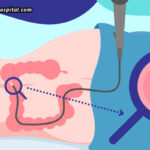Medications are required for treating and controlling a wide range of health conditions, but many of them might have unforeseen consequences for the digestive system. If you take any kind of medicine for infections, chronic diseases, or other disorders, you should be aware of how it might impact your digestive health. These effects might be minor and transient in certain situations, but they can also cause pain or long-term problems in others. You may continue to get the benefits of required therapies, while maintaining your digestive system in good condition by learning how to handle these adverse effects.
How medications affect digestion
The digestive system is extremely sensitive to changes in the body, and medicines can affect it in a number of different ways. Depending on the kind of medication, these effects might include nausea, constipation, or diarrhoea. They could also impact the intestinal flora, the stomach lining, or the digestive processes. Certain medicines may also cause imbalances that can interfere with regular digestive rhythms by slowing down or speeding up digestion.
- Affecting digestive tract muscle movement: Some medications may change the way the muscles in your digestive system contract, which may have an impact on how food passes through your system. Your muscles may become sluggish and cause bloating or constipation. On the other hand, diarrhoea and cramps could happen if they accelerate. If not treated appropriately, either situation may cause discomfort and long-term digestive problems.
- Irritating the stomach lining: Certain medications have a severe effect on the lining of the stomach, which can lead to inflammation or even ulcers. The symptoms of nausea, vomiting, or stomach discomfort may result from this inflammation. Prolonged irritability may also raise the possibility of more severe ailments like gastrointestinal haemorrhage.
- Upsetting bacteria in the gut: Trillions of bacteria reside in the human gut and are essential to digestion and overall health. The balance of healthy and harmful bacteria in the stomach can be upset by certain medicines, which can cause digestive problems including gas, diarrhoea, and bloating. Any disturbance to the gut microbiota can have a major effect on digestive health as it is necessary for food digestion, nutrient absorption, and infection prevention.
- Altering stomach acid levels: Certain medications can increase or decrease the amount of production of stomach acid. The amount of stomach acid produced might vary depending on the medicine. Reducing stomach acid too much can cause indigestion, bloating, and loss of nutrients by interfering with the body’s natural capacity to break down food. On the other hand, an increase in stomach acid production can irritate the stomach lining, resulting in pain and diseases like gastritis or acid reflux.
- Impacting the body’s fluid balance: Some medicines may result in fluid loss or retention in the body, which may have an impact on bowel motions. Constipation can be caused by dehydration, and diarrhoea or bloating can be caused by excessive fluid retention. Maintaining proper hydration is essential while taking medications that alter the body’s fluid balance since they can have a direct effect on digestive health.
Common digestive side effects
There are a few typical digestive side effects associated with certain medications; however, they might vary depending upon the medication type and the patient’s reaction.
- Constipation: Many drugs can cause constipation as a side effect, particularly those that slow down the passage of food through the digestive tract. Bloating, irregular bowel motions, and trouble passing stools are possible symptoms. A regular physical exercise schedule, a higher fibre intake, and enough hydration are all effective ways to alleviate constipation.
- Diarrhoea: Diarrhoea may result from medications that accelerate the digestion process or alter gut flora. This may result in dehydration, cramping in the abdomen, and loose, frequent faeces. Eating a balanced diet that promotes digestive health and staying hydrated are key to managing diarrhoea. Probiotics may occasionally assist in re-establishing the proper balance of gut flora.
- Nausea and vomiting: Common adverse effects associated with medications that irritate the stomach lining or change the amount of stomach acid include nausea and vomiting. Reducing these symptoms can be achieved by eating smaller meals, avoiding rich or spicy foods, and drinking enough water. Talk to your healthcare practitioner about other medications if nausea fails to subside away.
- Gas and bloating: Medication that upsets the balance of gut flora or interferes with digestion might cause bloating and excessive gas. In order to control bloating, you should pay attention to what you eat and stay away from stuff like soda and fatty meals that could make your condition worse. Frequent exercise also promotes good digestion, which helps reduce gas and bloating.
- Acid reflux: Acid reflux may be brought on by medications that relax the muscles around the lower oesophageal sphincter or enhance the production of stomach acid. Heartburn, a burning feeling in the chest, and pain are some symptoms of this condition. Eating smaller meals, avoiding lying down right after, and avoiding trigger foods can all help manage acid reflux.
Managing digestive side effects
Maintaining your general well-being requires controlling the adverse effects of medications on your digestive system. Here are some useful coping mechanisms to assist you with typical problems.
- Staying hydrated: Drinking enough water is one of the easiest, but most powerful, strategies to maintain gut health when taking prescription medications. Constipation may be avoided, healthy digestion can be supported, and your digestive system can remain functional with regular water consumption. Try to drink eight glasses of water or more each day, depending on the weather and your level of activity.
- Consuming a well-rounded diet: Constipation, bloating, and diarrhoea can be reduced and digestive health can be supported by a well-balanced diet high in fruits, vegetables, and lean proteins. To maintain your digestive system functioning at its best, stay away from meals that might exacerbate symptoms, such as fried or greasy foods, and choose whole grains and high-fibre foods instead.
- Keeping an eye on portion sizes: If you are already suffering from side effects like nausea or acid reflux, overeating might make your digestive problems worse. Smaller frequent meals can help reduce symptoms and avoid upset stomachs. This method lowers the likelihood of symptoms by improving the efficiency with which your digestive system processes meals.
- Staying active: By encouraging the passage of food through your digestive tract, regular exercise maintains a healthy digestive system. By activating the muscles involved in digestion, exercise can help lessen bloating and constipation. To maintain the health of your digestive system, try to engage in at least 30 minutes of moderate activity most days of the week.
- Talking to your healthcare provider: It’s critical to share any severe or ongoing gastrointestinal side effects you are having with your healthcare professional. A professional doctor, for instance one at Mission Gastro, the best gastro hospital in Ahmedabad, might be able to suggest alternate medications, change your dosage, or suggest other therapies to help with your symptoms. Never stop taking prescription drugs without first talking to your doctor, since this might have major negative effects on your health.
Despite being essential for treating a variety of illnesses, medicines may have unforeseen consequences for the digestive system. You may safeguard your digestive health and uphold your general well-being by being aware of how medications affect digestion and taking action to control the associated side effects. Healthy lifestyle choices including eating a balanced diet, exercising frequently, and drinking plenty of water can help reduce the negative effects of medications on the digestive system.








